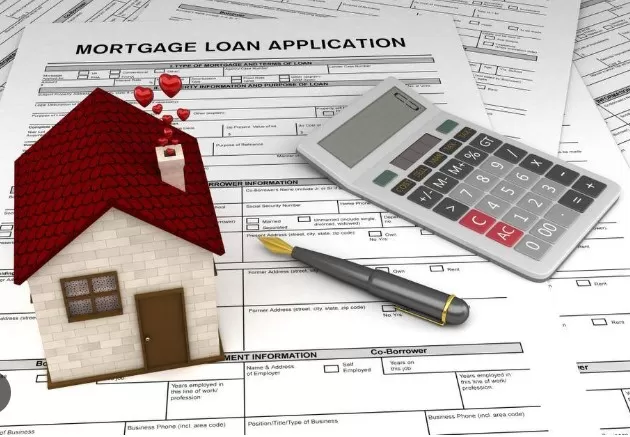Everything About Buying a Home “As Is”: What You Should Know. “In today’s competitive housing market, where demand often exceeds supply, considering a house listed ‘as is’ comes with its own set of advantages and risks,” notes Alexa Oestreicher of Legacy Properties Sotheby’s International Realty in Portland, Maine.
While this approach may help you avoid bidding wars and secure your dream home at an attractive price, it also carries the potential of overpaying for a property in need of substantial or unexpected renovations.
In recent years, making offers on properties “as is” and waiving inspections has become commonplace, driven by limited inventory and the need for buyers to take calculated risks. However, whether this strategy is suitable depends on individual factors such as the buyer’s budget, preferences, and the specific property being considered.
Buying a Home As Is: Understanding the Implications

When a seller lists a house “as is,” it indicates their unwillingness to undertake any additional work or repairs on the property before completing the sales transaction.
In most cases, buyers should anticipate taking on all necessary repairs and expenses themselves. While some sellers may be open to reasonable concessions, it is crucial for buyers to be prepared to purchase the home in its current condition and assume responsibility for any needed repairs at their own expense, as stated by Heelah Saleem of Venture Sotheby’s International Realty.
Buying a home “as is” requires careful consideration.
It means accepting the property in its present state, with the understanding that no additional work or improvements will be made by the seller. Buyers must be financially prepared to handle any repairs or renovations independently.
Prioritizing a thorough inspection and obtaining professional advice can help buyers assess the true condition of the property and make informed decisions about proceeding with the purchase.
Understanding Potential Issues with As-Is Homes

When sellers list homes “as is,” it signifies that they are aware of the need for repairs or improvements.
However, the term itself does not specify the exact nature or extent of the necessary work. An as-is home can range from needing a minor window replacement to requiring a complete roof overhaul.
It may be afflicted by an insect infestation or suffer from significant structural damage. The scope of repairs can vary, from simply replacing a hot water heater to being obligated to install modern heating systems and update the electrical system.
“From a legal perspective, this implies that some typical representations—such as functioning heat, hot water, and a leak-free roof—may not be guaranteed in the contract,” explains Eileen O’Hara of Daniel Gale Sotheby’s International Realty in New York.
Buyers of as-is homes should be prepared for potential issues and understand that the property’s condition may necessitate more extensive repairs or renovations than initially anticipated.
Conducting a thorough inspection, seeking professional advice, and potentially negotiating with the seller for concessions or credits can help mitigate some of these concerns. It is vital for buyers to carefully assess the risks and costs associated with an as-is home and make informed decisions based on their specific circumstances and budget.
Understanding the Varied Meanings of As-Is Homes

The term “as is” does not always indicate the need for major work on a property.
It can have different implications depending on the circumstances of the sale. For example, an as-is listing may suggest that the seller lacks knowledge about the property’s condition, which could occur if the home has been vacant or is being sold by an out-of-town relative after the owner’s death.
In such cases, the seller may not be able to provide a comprehensive history of the property.
Furthermore, the as-is designation can signify the seller’s desire for a quick and streamlined sales process, without delays caused by addressing issues discovered during inspections.
Additionally, homes sold as is may involve unpermitted renovations, such as a finished basement or a DIY deck. In such instances, the buyer understands that these spaces have not undergone inspection or received a certificate of occupancy to ensure their safety.
It’s important for buyers to recognize that the term “as is” can encompass a range of situations and factors.
Conducting thorough inspections, seeking professional advice, and considering the potential risks associated with the property are essential steps for making informed decisions. Buyers should carefully evaluate the specific circumstances of each as-is home and assess their comfort level in addressing any unknowns or potential issues that may arise.
Differentiating As-Is Homes from As-Is Properties: Understanding the Risks

It’s important to distinguish between an as-is home and an as-is property, as cautioned by Oestreicher.
While an as-is home typically refers to the condition of the house itself, an as-is property denotes potential issues related to the property’s title or ownership.
Oestreicher highlights that some properties may have title issues that render them uninsurable, posing significant risks for buyers.
These title-related challenges can introduce uncertainties and potential legal complications. For example, a property with unresolved inheritance matters may lead to heirs emerging and claiming ownership even after a sale, resulting in prolonged legal battles and unpredictable costs.
Compared to assessing the risks associated with the physical condition of a house, evaluating the risks associated with a property’s title can be more challenging.
Understanding the potential complexities and seeking legal advice can help buyers navigate these situations more effectively.
Inspecting an As-Is Home: Essential Steps for Buyers

Experts emphasize that buyers considering an as-is home listing should prioritize a thorough inspection of the property.
Despite the “as is” designation, buyers have the right—and indeed, the responsibility—to conduct a detailed examination of the home and its components. This inspection is crucial in identifying any necessary renovations, repairs, or potential issues that may require attention.
During the inspection, it is advisable to assess various aspects of the property, including radon levels, the condition of the well, and the septic system.
Understanding these factors provides buyers with valuable insights into the overall condition and potential maintenance requirements of the property.
As the responsibility for repairs typically falls on the buyer in as-is sales, it is essential to ensure that the necessary repairs are within their budget and that they have a realistic understanding of the associated costs.
It’s important to note that in as-is sales, the ability to negotiate with the seller for repairs or credits based on unexpected conditions identified during the inspection is often limited or eliminated.
Advantages of Buying a Home As Is: Opportunities and Reduced Competition

Opting for an as-is home purchase can offer several benefits, particularly for buyers who have the time, financial resources, or do-it-yourself skills to address necessary repairs or obtain permits.
By considering an as-is property, buyers may be able to avoid competitive bidding situations that often arise in the real estate market.
O’Hara suggests that the as-is aspect of a sale can deter other buyers, even if it does not necessarily indicate poor condition.
This perception can create an opportunity for buyers who are not afraid of taking on repairs or improvements. The advantage lies in the reduced competition that as-is homes often face compared to other properties on the market.
Purchasing an as-is home allows buyers to approach the transaction with a different perspective.
By being open to the potential challenges and opportunities presented by an as-is property, buyers may find greater flexibility in negotiating the price and terms, resulting in a potentially more favorable purchase.
*The information is for reference only.